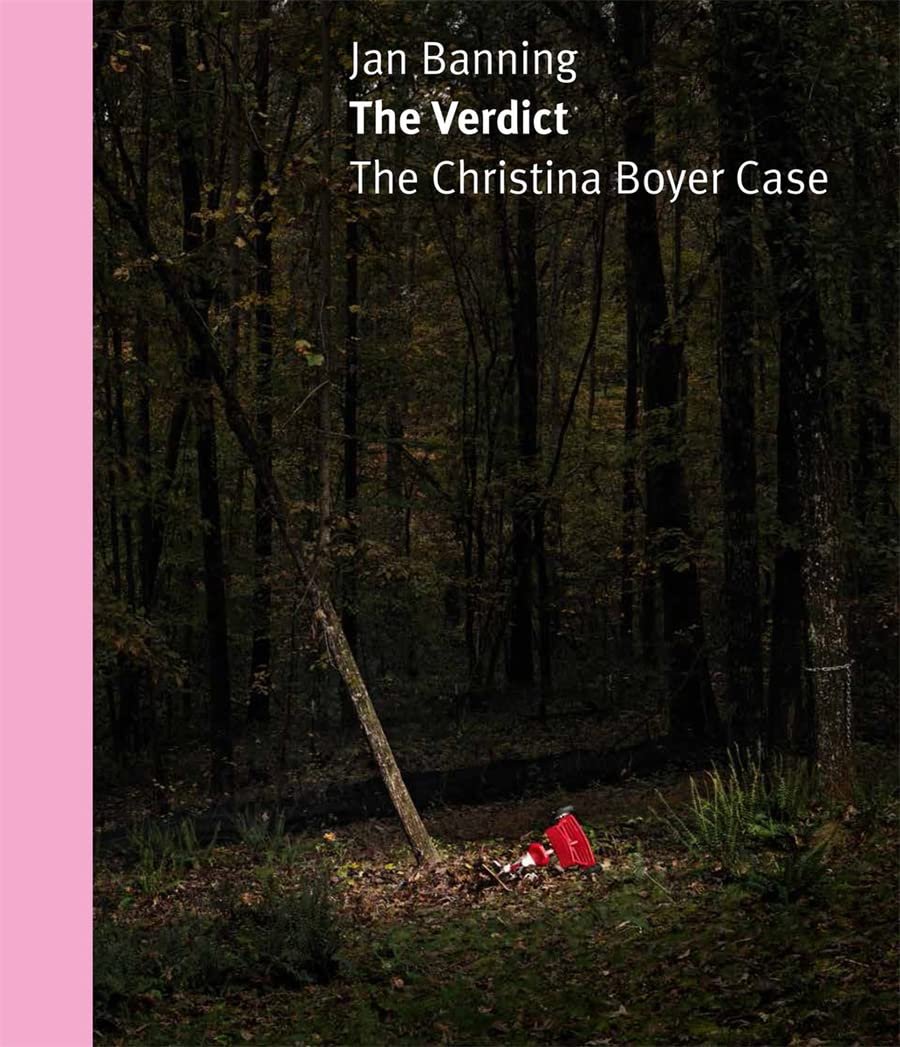Book Presentation & Discussion:
JAN BANNING:
The Verdict: The Christina Boyer Case
Featuring Richland County Chief Public Defender Fielding Pringle
701 Center for Contemporary Art director Michaela Pilar Brown and
world-famous Dutch photographer Jan Banning
Monday, May 16, 2022
7:30 pm
Admission Free
Richland County Chief Public Defender Fielding Pringle and 701 Center for Contemporary Art director Michaela Pilar Brown will lead a conversation at 701 CCA with world-famous Dutch photographer Jan Banning during the first American presentation of his new book, The Verdict: The Christina Boyer Case. The conversation and book presentation will take place Monday, May 16, at 701 CCA.
Banning, a former 701 CCA artist in residence who has had two solo exhibitions at the center, makes the case for Boyer’s innocence in the death of her three-year-old daughter Amber in Carrollton, GA, in 1992. Boyer has been incarcerated for three decades after she accepted – under duress and after receiving poor legal representation – a prison sentence without pleading guilty to avoid a death penalty trial.
“For decades I have admired Jan Banning’s socially focused and engaging portrait projects on menial professions and human conditions otherwise ignored,” said Anne Wilkes Tucker, curator emerita of photography at the Museum of Fine Arts in Houston, one of many museums that has Banning’s work in its collection. “This moving book calls for what should be and could be done for Christina.”
Boyer’s “heartbreaking case infuriates me,” Tucker wrote, “but came as no surprise. Bullied and abused as a child, she is one of thousands of women without resources who weren’t believed, and had inadequate defense.”
The plight of especially poor defendants in the United States’ judicial system, in which 95 percent of cases never go to trial, will be part of the conversation with Banning. Public attorney Pringle has decades of experience representing indigent defendants.
Banning’s book presents a complex and multi-layered approach to the Boyer case. Two chapters, by Banning and Georgetown University law professor Marc M. Howard, discuss the case and the American judicial system. Photographed pages from the local newspaper provide media context and show the papers’ biased reporting on the case. “The Family Album” shows family photos of Boyer and her daughter, while another section shows hand-written pages from Boyer’s prison diaries. In “Imaginations,” Banning presents interpretive and conceptual photographs, mixing photojournalism and staged art photography, to illustrate aspects of the case, though not literally. “Christina’s Associations” presents Boyer’s written responses to Banning’s photos of the Southern environment, an environment that Boyer has not seen in person in decades.
Banning came across Boyer’s case when he was making portraits of inmates at Georgia’s Pulaski Women’s Prison for his 2016 book Law & Order: The World of Criminal Justice, which examines crime and punishment in five different countries through photos and text. Since then, Banning – by training a historian, with decades of experience as a photojournalist – has spent years researching the Boyer case, spending more than six months in the small town of Carrollton, Carroll County, and elsewhere in Georgia.
New York Emmy-winning production company Latchkey Films, contributors to the Netflix series The Innocence Files, is making a documentary about the Boyer case and Banning. Banning’s and Boyer’s exhibition about the case, The Verdict: Beyond A Reasonable Doubt?, opened in February at the Nederlands Fotomuseum, the national Dutch Photo Museum, in Rotterdam.
Banning was born in 1953, in Almelo, The Netherlands. His work has been exhibited in some 30 countries and is in the collections of many museum, including the Rijksmuseum in Amsterdam, Atlanta’s High Museum and the Philadelphia Museum of Art. Banning has published more than a dozen books of photography. Among his books and exhibitions are Bureaucratics, about government officials in several countries, including the United States; Comfort Women, about Indonesian women forced into sexual slavery by Japan during World War II; Traces of War, about forced laborers who survived the Japanese Burma and Sumatra Railways building project during the same war; and Down and Out in the South, about homeless people in Columbia, SC, Atlanta and the Mississippi Delta. Both Bureaucratics and Down and Out were exhibited at 701 CCA, where a residency for Banning provided the impetus for and beginning of the Southern homeless project.
701 CCA is a non-profit visual arts center that promotes understanding, appreciation and enjoyment of contemporary art, the creative process and the role of art and artists in the community. The center also encourages interaction between visual and other art forms. 701 CCA is located at 701 Whaley Street, 2nd Floor, Columbia, SC 29201.

